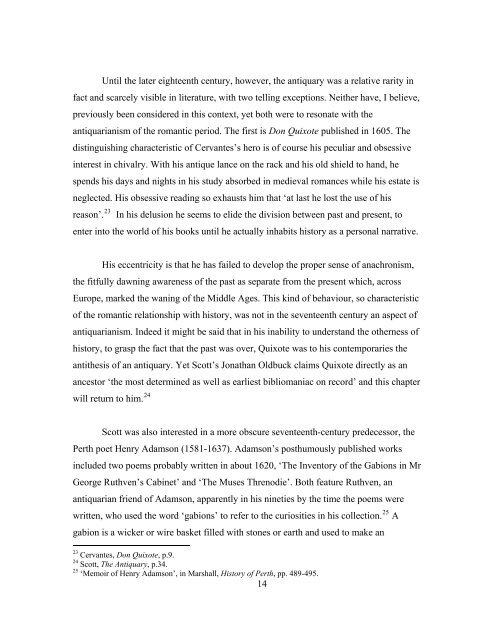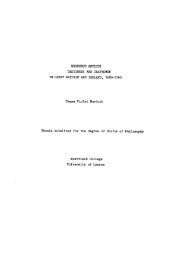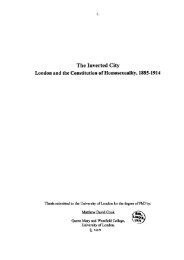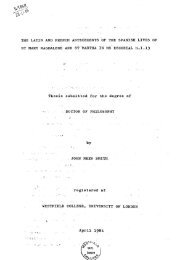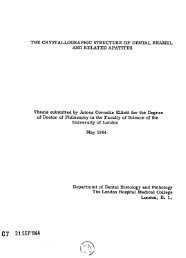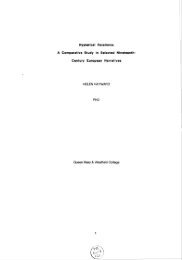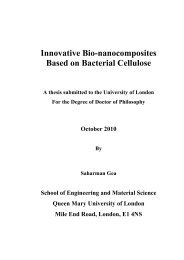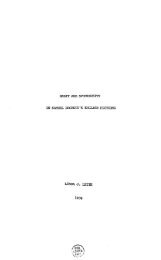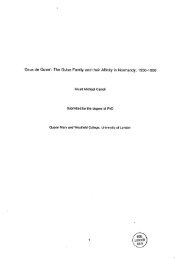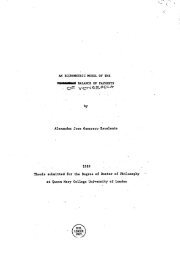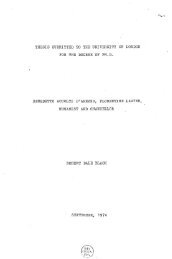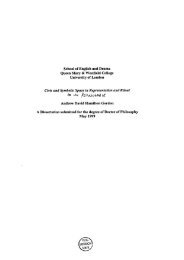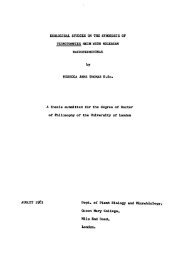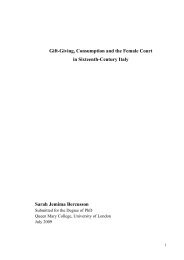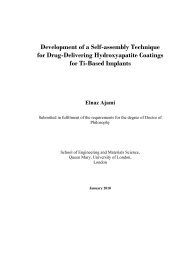Antiquaries in the Age of Romanticism: 1789-1851 - Queen Mary ...
Antiquaries in the Age of Romanticism: 1789-1851 - Queen Mary ...
Antiquaries in the Age of Romanticism: 1789-1851 - Queen Mary ...
Create successful ePaper yourself
Turn your PDF publications into a flip-book with our unique Google optimized e-Paper software.
Until <strong>the</strong> later eighteenth century, however, <strong>the</strong> antiquary was a relative rarity <strong>in</strong><br />
fact and scarcely visible <strong>in</strong> literature, with two tell<strong>in</strong>g exceptions. Nei<strong>the</strong>r have, I believe,<br />
previously been considered <strong>in</strong> this context, yet both were to resonate with <strong>the</strong><br />
antiquarianism <strong>of</strong> <strong>the</strong> romantic period. The first is Don Quixote published <strong>in</strong> 1605. The<br />
dist<strong>in</strong>guish<strong>in</strong>g characteristic <strong>of</strong> Cervantes’s hero is <strong>of</strong> course his peculiar and obsessive<br />
<strong>in</strong>terest <strong>in</strong> chivalry. With his antique lance on <strong>the</strong> rack and his old shield to hand, he<br />
spends his days and nights <strong>in</strong> his study absorbed <strong>in</strong> medieval romances while his estate is<br />
neglected. His obsessive read<strong>in</strong>g so exhausts him that ‘at last he lost <strong>the</strong> use <strong>of</strong> his<br />
reason’. 23 In his delusion he seems to elide <strong>the</strong> division between past and present, to<br />
enter <strong>in</strong>to <strong>the</strong> world <strong>of</strong> his books until he actually <strong>in</strong>habits history as a personal narrative.<br />
His eccentricity is that he has failed to develop <strong>the</strong> proper sense <strong>of</strong> anachronism,<br />
<strong>the</strong> fitfully dawn<strong>in</strong>g awareness <strong>of</strong> <strong>the</strong> past as separate from <strong>the</strong> present which, across<br />
Europe, marked <strong>the</strong> wan<strong>in</strong>g <strong>of</strong> <strong>the</strong> Middle <strong>Age</strong>s. This k<strong>in</strong>d <strong>of</strong> behaviour, so characteristic<br />
<strong>of</strong> <strong>the</strong> romantic relationship with history, was not <strong>in</strong> <strong>the</strong> seventeenth century an aspect <strong>of</strong><br />
antiquarianism. Indeed it might be said that <strong>in</strong> his <strong>in</strong>ability to understand <strong>the</strong> o<strong>the</strong>rness <strong>of</strong><br />
history, to grasp <strong>the</strong> fact that <strong>the</strong> past was over, Quixote was to his contemporaries <strong>the</strong><br />
anti<strong>the</strong>sis <strong>of</strong> an antiquary. Yet Scott’s Jonathan Oldbuck claims Quixote directly as an<br />
ancestor ‘<strong>the</strong> most determ<strong>in</strong>ed as well as earliest bibliomaniac on record’ and this chapter<br />
will return to him. 24<br />
Scott was also <strong>in</strong>terested <strong>in</strong> a more obscure seventeenth-century predecessor, <strong>the</strong><br />
Perth poet Henry Adamson (1581-1637). Adamson’s posthumously published works<br />
<strong>in</strong>cluded two poems probably written <strong>in</strong> about 1620, ‘The Inventory <strong>of</strong> <strong>the</strong> Gabions <strong>in</strong> Mr<br />
George Ruthven’s Cab<strong>in</strong>et’ and ‘The Muses Threnodie’. Both feature Ruthven, an<br />
antiquarian friend <strong>of</strong> Adamson, apparently <strong>in</strong> his n<strong>in</strong>eties by <strong>the</strong> time <strong>the</strong> poems were<br />
written, who used <strong>the</strong> word ‘gabions’ to refer to <strong>the</strong> curiosities <strong>in</strong> his collection. 25 A<br />
gabion is a wicker or wire basket filled with stones or earth and used to make an<br />
23<br />
Cervantes, Don Quixote, p.9.<br />
24<br />
Scott, The Antiquary, p.34.<br />
25<br />
‘Memoir <strong>of</strong> Henry Adamson’, <strong>in</strong> Marshall, History <strong>of</strong> Perth, pp. 489-495.<br />
14


